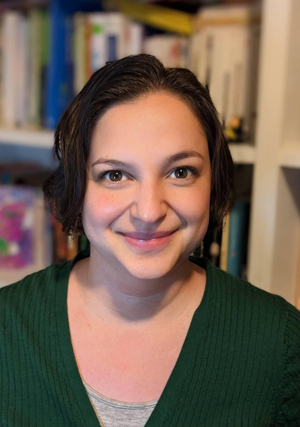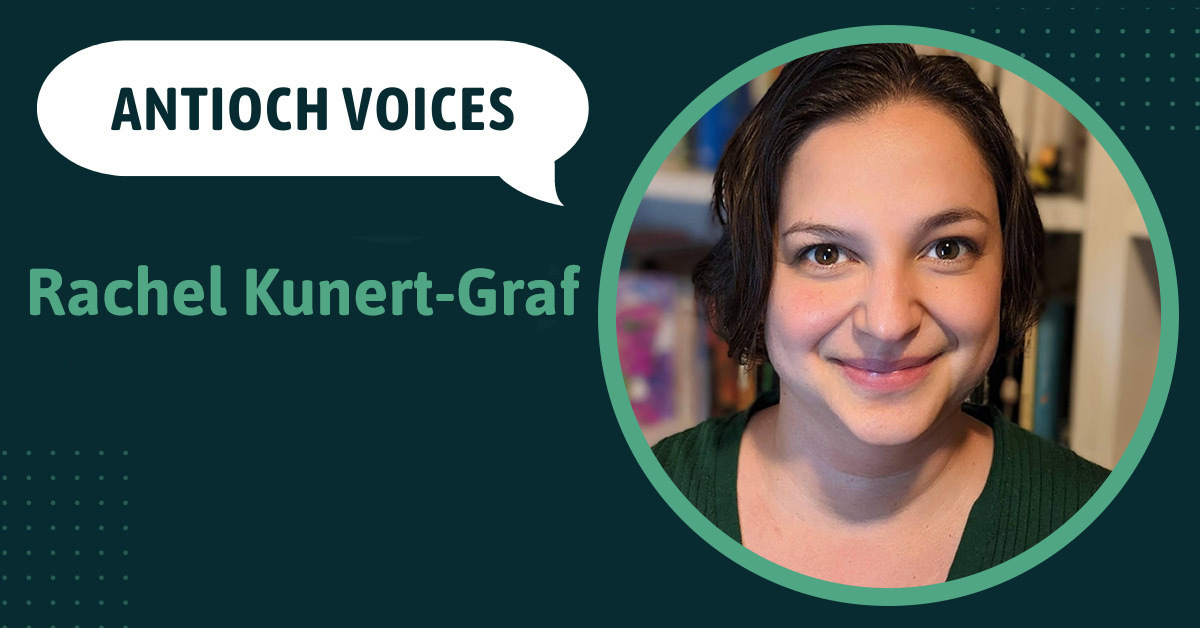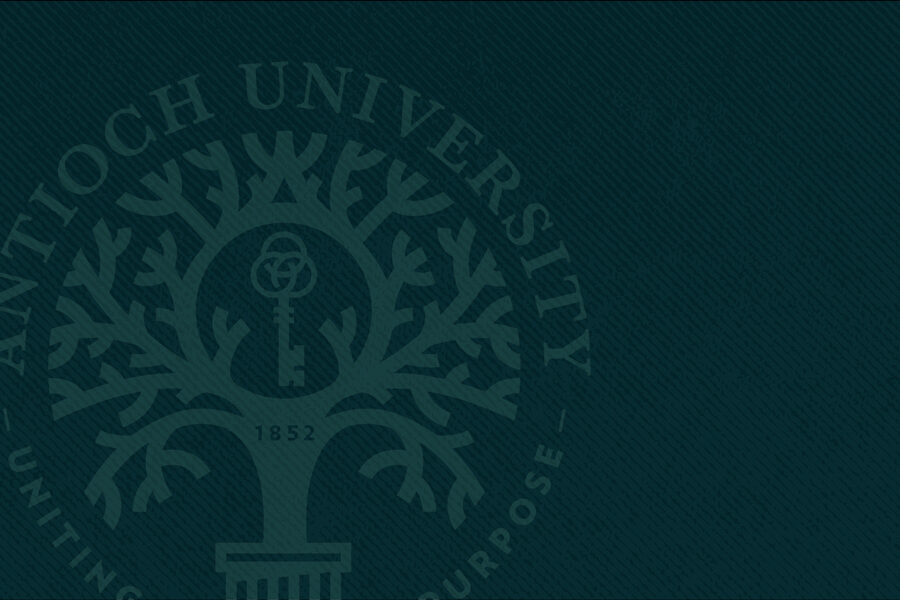This essay is part of Antioch Voices, a forum for Antiochians to speak out about issues important to them. Opinions expressed here belong to the author alone and do not necessarily reflect the official position of Antioch University. If you’d like to share your own voice, the first step is to send a short description of what you are planning to write about to [email protected].
(composed October 2023)
The Jewish custom for burial requires that mourners shovel dirt onto the coffin ourselves. We bury our dead quickly. We join the movements of our bodies to help our hearts accept what our minds know. For too many years, I’ve kept my Zionist hope on ice, boxed away out of sight. When I marched for a free Palestine, I felt like I was shoveling that dirt.
I watch the catastrophe in Gaza in horror. As much as I want to reject the Zionist state of Israel’s claim on me—don’t kill in my name—I have to claim its people as my own. I claim them to my shame. Just as I have to claim the American Jewish voices ruthlessly excusing genocide in the colonizer’s logic of self-defense. I am so deeply ashamed, because I love them, my Jewish community. And I’m ashamed, because I share with them a whisper of a hope, so brutally buried under bombardments, under rubble, and under bodies. There is still a hope, a prayer, a faith that for me outlasts strict theism, that nations can know peace, and lay down their swords, blunt them into plows to nurture and grow. A hope that the fertile crescent be a Godly place.
// Zionism is racism. There is no formulation of or location for a Jewish state that is not an ethnostate. //
Whatever I call that whispered hope, my Zionism is dead. I grew up believing in the state of Israel as a Jewish hope. I saw it in my family, my shul, the seniors in the Jewish elder care home. I celebrated it with them. In the best case, it has been a meager hope for respite from harm: isolationist, insular. A hope that offers a narrow umbrella, from a world in which Jews can never be safe.
In between the first intifada (my infancy) and the second (my late adolescence) the defining Zionist memories of my childhood are of the fervent talk of a two-state solution and the earnest grief for a stalled peace process, crystallized by the far-right Israeli assassination of Yitzhak Rabin. That’s how I saw my parents’ generation, believing in a peaceful coexistence, lamenting when achieving that hope grew less likely. It’s how they still want to see themselves, although they now are often more defeatist.
It’s only now that I let myself grieve it. In addition to my grief for the thousands of human lives ended in recent days and grief for those living in fear, wanting the comforts of home and family, wanting to have their basic needs met; I feel this other communal grief for the hope I once invested in a country of and for my people. Like the complex grief for a parent whose abuse you helped conceal, I do mourn it.
// For a senior year high school history presentation, I repeated the talking point, “Israelis wouldn’t send their 18-year-olds into danger if it wasn’t necessary.” An Arab classmate later gave a presentation on Palestinian suffering on a day I was absent, and what I couldn’t get over was my outrage over not having the chance to refute her arguments. //
Confining residents of Gaza behind a wall reduced the risk to those conscripted 18-year-old soldiers. But there is no safety guaranteed by violence; no peace won on either side of a weapon. In the worst case (the truthful case), that Zionist hope has been a cruel one, defining our security by others’ suffering, and by stoking the fears of generations.
I have kept my dead Zionism locked away, because I feared confronting my own grief for it. Because I did not know how to separate that worldly hope from the faith it was contorted around. I did not bury my Zionism, because I did not want to widen the distance between myself and Jewish family and friends who take pride in our people’s control of that land. To say nothing of the friends and family who vacation there, only miles away from the world’s largest open-air prison.
// 97% of the drinking water in Gaza was unsafe for human consumption, before October. Now there is virtually no clean water. //
I have kept my dead Zionism on ice to avoid honest self-recognition. Because, I didn’t have the capacity to regret my youthful complicity, naivete, cold-heartedness, to regret all of those faults and still exercise self-compassion; to do all that and still believe a just world is possible. I’m ashamed of the conviction with which I believed the lies. And, I’m profoundly disappointed in the people who brought me up to believe those falsehoods and obfuscations, and who cling to them still.
When I marched along my city’s streets, joining my voice to others’ calling for an end to violence, I retraced my own steps from when I had marched for women, and when I had marched against racist police brutality. I felt the echoes of joy and hope that come from striving in community towards justice. But those were not the only echoes for me. Along our path, I spied a child leaning out from his high-rise balcony, waving an Israeli flag, while an adult sat, less visible, behind him.
// I once marched in a Zionist rally, carrying an Israeli flag and singing “Am Yisrael Chai.” Actually, it was a counter-protest I’m remembering, to which my Jewish youth group and I were bussed in, to outnumber and overshadow the pro-Palestinian rally happening at the same time. I thought nothing about the stakes of the disagreement between our two sides. In fact, I thought little about the Palestinians at all, subsumed as I was in the pride of being Jewish, and the novelty of the event. //
I write my grief, not for solace or sympathy, but to dislodge that grief from the snippets of memory, themselves rhetorical traces of ideology I had not yet learned to recognize.
My head leads. My broken heart follows.
The world watches. Each day, more bombs, more dead. A hospital, a church, a refugee camp, an ambulance, a university. Thousands up thousands of victims. The facts are staggering. The images horrifying. And none of what we in the West know touches the terror Palestinians endure. Words fail against its magnitude. Comprehension fails against our failure to stop it.
// My first rabbi, who led the congregation my whole childhood, delivered a sermon about the Holocaust when I was around 10 years old. “If it had been 6 million cats and dogs” he bellowed, the whole world would have intervened, “But, because it was Jews” they let us die. //
The rest is commentary.

Rachel Kunert-Graf
Rachel Kunert-Graf is a Jewish mother, professor and media scholar. Her academic publications interrogate the ways in which visual-verbal media allow and prevent us from recognizing persecution, including but not limited to, the competing claims of victimhood in Israel-Palestine.




